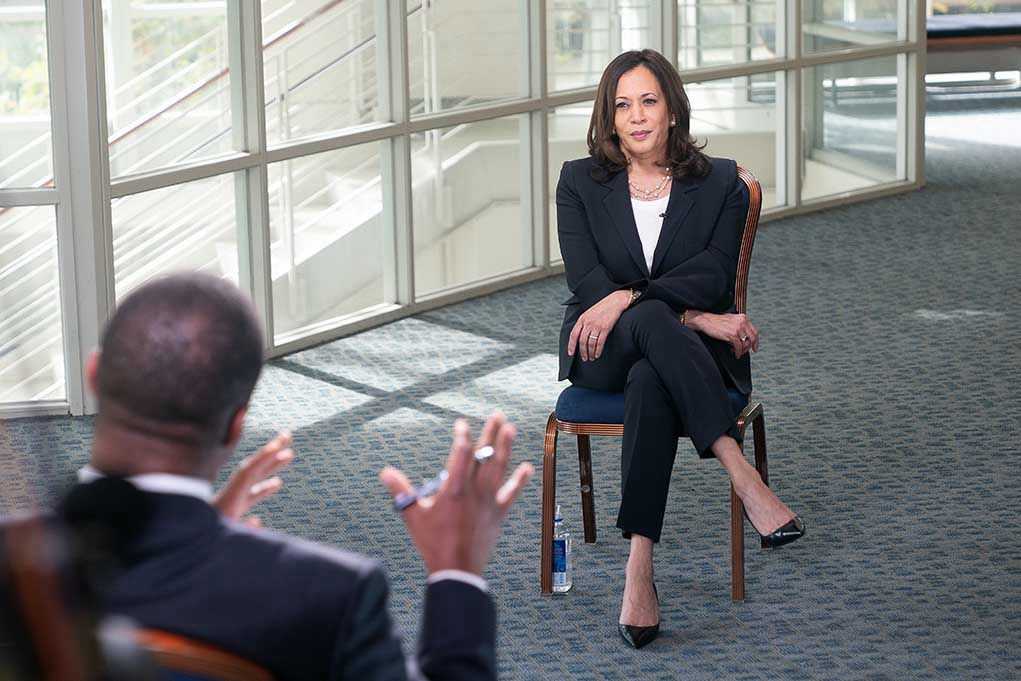
Kamala Harris’s memoir comments have ignited a fierce debate over identity politics, with Treasury Secretary Scott Bessent leading the charge against her judgments.
Story Highlights
- Scott Bessent criticizes Kamala Harris for her memoir remarks on Pete Buttigieg.
- Harris faces backlash for perceived identity politics over leadership choices.
- Bessent labels Harris as a “terrible candidate” and Buttigieg as the “worst transportation secretary.”
- The controversy highlights ongoing debates over diversity and meritocracy in politics.
Scott Bessent Takes a Stand
On September 24, 2025, U.S. Treasury Secretary Scott Bessent made headlines by openly criticizing Kamala Harris for her controversial remarks about Pete Buttigieg in her newly released memoir. Harris had cited concerns about the public’s readiness for a ticket featuring both a Black woman and an openly gay man. Bessent, openly gay himself, accused Harris of engaging in identity politics, challenging her leadership and judgment. He labeled her a “terrible candidate” and Buttigieg the “worst transportation secretary in history.”
Bessent’s comments have sparked widespread discussion, particularly among conservative circles who view this as an example of identity politics overshadowing merit. The Treasury Secretary’s remarks come amid heightened scrutiny of diversity and representation within the Democratic Party, with Bessent emphasizing the need for merit-based leadership. This public clash between high-profile LGBTQ+ leaders from opposing parties is rare and has intensified the debate over identity factors in political appointments.
Harris’s Defense and Criticism
In response to the backlash, Kamala Harris defended her decision, stating that her considerations were based on strategic evaluations of the ticket’s viability rather than Buttigieg’s sexuality. Her memoir, which includes candid reflections on her VP selection process, has been met with mixed reactions. Supporters argue that Harris was pragmatic, while critics, including Bessent, view her decision-making as flawed and a reflection of misplaced priorities within Democratic leadership.
The narrative has gained traction in major outlets and social media, further polarizing opinions on the balance between diversity and electability. As the story unfolds, it underscores the complexities of representation in U.S. politics, with both parties navigating public perception and internal dynamics.
Implications and Future Considerations
The controversy surrounding Harris’s memoir comments and Bessent’s critique has significant implications for future political strategies. In the short term, it has intensified scrutiny of Harris’s leadership and the Democratic Party’s approach to diversity. Long-term effects may include shifts in candidate selection processes and debates over merit versus identity in political appointments. This situation also highlights the broader electorate’s exposure to discussions on representation and political calculation.
As the political landscape evolves, this incident serves as a reminder of the tensions inherent in balancing identity and merit in national politics. The ongoing dialogue may influence how both parties address these challenges in future election cycles.
Sources:
USA Today: Scott Bessent Slams Kamala Harris Over Memoir Comments
RealClearPolitics: Gay Cabinet Secretary Slams Harris for Snubbing Buttigieg

















